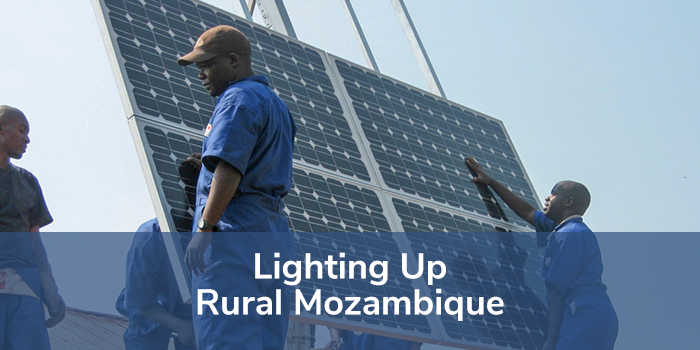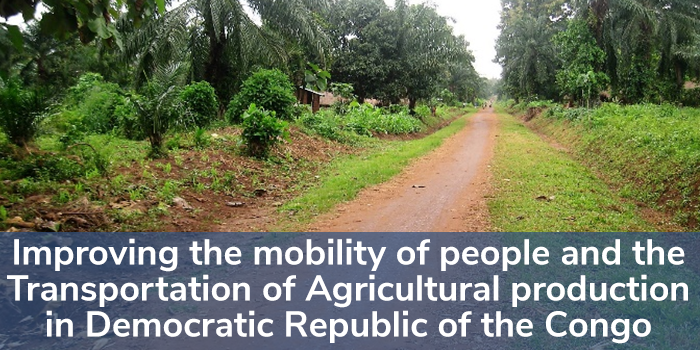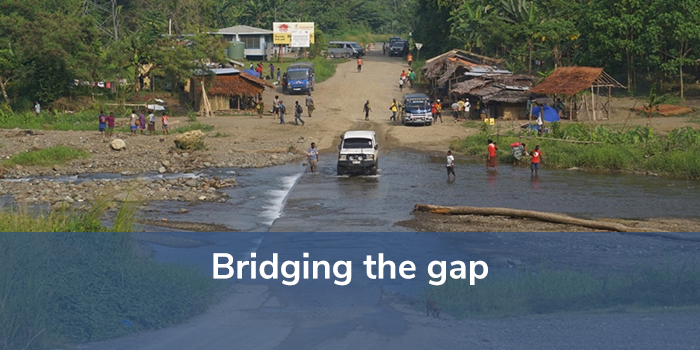
As a team dedicated to rural development, we understand its crucial role in improving the lives of people in rural areas. Rural development is not just about agriculture and forestry; it encompasses a range of activities that seek to enhance the economic, social, health care, and environmental well-being of rural people and communities.
At its core, rural development is improving the quality of life in rural areas by creating jobs, providing basic amenities, and developing and managing infrastructure. It is a comprehensive and integrated approach that addresses rural communities’ multifaceted challenges.
Why is Rural Development Important?
Rural areas are home to a significant proportion of the world’s population, yet they are often neglected in development. The lack of infrastructure, services, and employment opportunities in rural areas leads to various challenges, including poverty, food insecurity, and limited access to healthcare and education.
Rural development is essential because it can help address these challenges and improve people’s lives in rural areas. Rural development can create jobs, improve access to basic amenities, and empower communities to take charge of their product.

What is Rural Development?
Rural development refers to improving rural areas’ economic, social, health care, and environmental conditions. This includes investing in infrastructure, developing local businesses, and promoting community development. Rural development aims to create a sustainable and vibrant economy in rural areas, which can benefit the local community and the wider society.
The Role of Rural Development in the European Union
Rural development is an essential priority for the Common Agricultural Policy (CAP) in the European Union. The CAP provides financial assistance and support to farmers and rural businesses to help them improve their productivity and competitiveness. Additionally, the CAP aims to promote sustainable agriculture practices and protect the environment.
Through the CAP, the EU supports a wide range of rural development measures, such as:
- Investing in rural infrastructure, such as roads, bridges, and broadband internet
- Supporting rural businesses, such as farmers, small and medium-sized enterprises (SMEs), and cooperatives
- Encouraging innovation and entrepreneurship in rural areas
- Promoting social inclusion and improving the quality of life in rural communities
- Protecting natural resources and preserving the countryside
Why Rural Development Matters
Rural development is essential for achieving sustainable and inclusive growth in the EU. Rural areas comprise around one-third of the EU’s population and are crucial for producing food, fiber, and other natural resources. Moreover, rural areas offer unique tourism, recreation, agriculture, and cultural heritage opportunities.
Investing in agriculture and rural development projects can bring multiple benefits, such as:
- Creating jobs and boosting local economies
- Improving access to services, such as healthcare and education
- Promoting environmental sustainability and protecting biodiversity
- Strengthening social cohesion and reducing poverty and inequality
- Enhancing the attractiveness of rural areas and preserving cultural heritage
How to Support Rural Development
Supporting rural development projects requires a coordinated effort from various stakeholders, such as governments, businesses, civil society organizations, and local communities. Here are some ways to promote rural development:
- Investing in rural infrastructure and services, such as transport, energy, and digital connectivity
- Providing financial support and technical assistance to rural businesses and entrepreneurs
- Fostering innovation and knowledge transfer in rural areas
- Encouraging public-private partnerships and social entrepreneurship
- Engaging local communities and stakeholders in the design and implementation of rural development policies and programs
Limited resources
One significant challenge is the limited resources available in rural areas. This can hinder the development of infrastructure and the provision of basic amenities.
Lack of financial resources, infrastructure, and human capital often leads to poverty, food insecurity, and limited access to healthcare and education. To address this, it is essential to invest in rural areas and provide support to rural communities.
Another challenge is the impact of climate change on rural areas. Changing weather patterns and increased frequency and intensity of natural disasters affect agriculture and rural communities’ livelihoods.
To mitigate the effects and costs of climate change on rural people, promoting sustainable agriculture practices and investing in renewable energy is crucial.
Limited access to markets is also a significant challenge faced by rural communities. Without market access, it can be challenging for rural communities to generate income and improve their economic well-being.
One strategy to address this is to develop value chains that connect family farmers with markets, providing them access to a broader customer base.
Political instability is another significant challenge that can impact rural development. Political instability can sometimes lead to a lack of investment and infrastructure development, hindering rural development efforts.
Therefore, ensuring that rural communities have a voice in decision-making processes and are included in development planning is essential.
In conclusion, rural development is a complex process that requires a comprehensive and integrated approach. Investing in agricultural development, infrastructure, education, and training and empowering women can create jobs, improve access to basic amenities, and enable communities to take charge of their development.
In addition, addressing the challenges faced by rural communities, such as limited resources, climate change, limited access to markets, and political instability, is essential to achieve sustainable rural development.
As a team dedicated to rural development, we are committed to working with rural communities to build a better future for all.

Multiple stakeholders
As we mentioned earlier, rural development is a complex process that requires the management and the involvement, cooperation, and funding of multiple stakeholders. Governments are critical in providing policy support and financial resources for rural development programs.
However, businesses also significantly impact rural areas by creating jobs and driving economic growth.
In recent decades and years, there has been growing interest in social entrepreneurship and sustainable business models to finance and promote rural development and sustainability. Social entrepreneurs aim to create businesses that generate profits and address social and environmental challenges.
Moreover, these businesses can positively impact rural areas by creating local jobs, supporting local supply chains, and improving access to essential services.
Another important aspect of rural economic development is innovation and knowledge transfer. Rural areas often face unique challenges that require creative solutions.
By investing in research and development, we can find new ways to address these challenges and promote sustainable economic development in rural areas. Knowledge transfer programs can also help disseminate best practices and facilitate learning between regions, schools, and communities.
In conclusion, rural development is a vital process that requires a coordinated effort from governments, businesses, civil society organizations, and local communities. Investing in rural infrastructure, housing, businesses, and communities can create a sustainable and prosperous future for everyone.
In addition, social entrepreneurship, innovation, and knowledge transfer can also play a significant role in our success stories of promoting rural development and addressing the complex challenges facing rural areas.

Strategies for Rural Development
There are many strategies for rural development, and the most effective approach will depend on each community‘s specific needs and challenges. However, some standard methods include the following:
- Agricultural Development: Agriculture is the backbone of many rural communities, and investing in agricultural development can significantly impact rural development. This includes improving access to agricultural inputs, promoting sustainable agriculture practices, and developing value chains to connect farmers with markets.
- Infrastructure Development: The lack of infrastructure is a significant barrier to rural development. Investing in infrastructure, such as roads, bridges, and water supply systems, can improve access to services and create employment opportunities.
- Education and Training: Education and training are essential for building the skills and knowledge needed for sustainable development. Providing education and training opportunities in rural areas can help to create a skilled workforce and improve access to employment opportunities.
- Empowering Women: Women play a vital role in rural development but are often marginalized and excluded from decision-making processes. Empowering women through access to education, training, and resources can help improve rural communities’ economic and social well-being.
Challenges in Rural Development
Despite the importance of rural development, many challenges must be addressed. These include:
- Limited Resources: Rural areas often lack the resources needed for development, including financial resources, infrastructure, and human capital.
- Climate Change: Climate change significantly impacts rural areas, with increased frequency and intensity of natural disasters and changing weather patterns affecting agriculture and livelihoods.
- Limited Access to Markets: Rural communities often face challenges in accessing markets, which limits their ability to generate income and improve their economic well-being.
- Political Instability: Political instability can significantly impact rural development, as it can lead to a lack of investment and infrastructure development.

Conclusion
Rural development is an essential component of sustainable development, and it plays a crucial role in improving people’s lives in rural areas.
Investing in agricultural development, infrastructure, education, and training and empowering women can create jobs, improve access to basic amenities, and enable communities to take charge of their development.
As a team dedicated to rural development, we are committed to working with rural communities to address their challenges and build a better future for all. Together, we can create vibrant, productive, and sustainable rural communities that contribute to prosperity and well-being.
CoopBusiness is a revolutionary cooperative business-building platform that empowers individuals to become entrepreneurs, business owners, and financially independent.
As a member, you’ll receive top-level business mentorship, access to our proprietary business systems, and the opportunity to access the funds you want to turn your business ideas into reality.